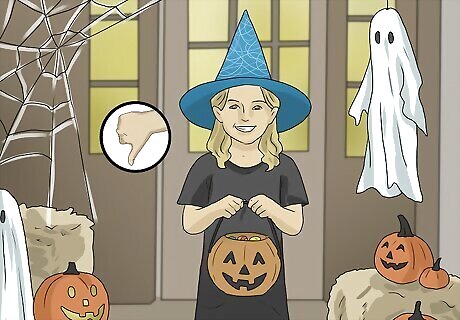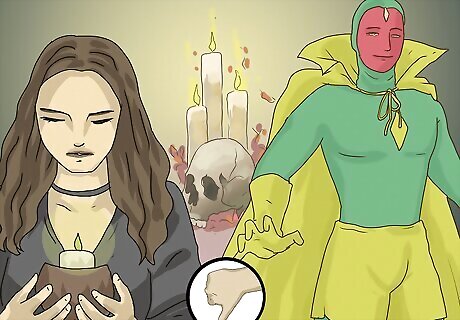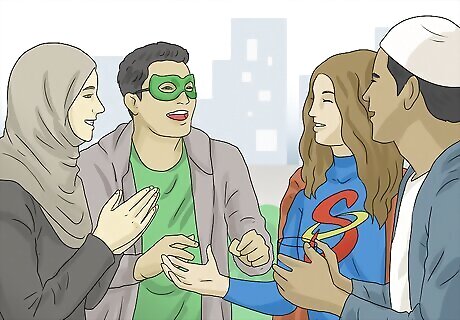
views
Is celebrating Halloween haram?

Yes, many Muslims consider Halloween to be haram (or forbidden). Halloween has roots in the ancient Celtic festival of Samhain, which took place from October 31st to November 1st every year. Samhain was believed to mark a brief time during which the lines blurred between the world of the living and the Otherworld, full of ghosts, demons, and spirits. This is precisely the reason why Muslims generally don’t celebrate Halloween: the worship of multiple pagan deities goes against the Muslim concept of “oneness” with God and touches upon one unforgivable sin, called “shirk,” which is akin to having false idols. Is trick-or-treating haram? Technically, yes. According to Elkadri, even though Halloween has become a day for “Reese's and Kit-Kats and [...] dressing up in cute little outfits,” its origins are “paganism,” and thus not permissible in the Islamic faith. Is wearing a Halloween costume haram? The Muslim concept of Tashabbuh, or imitation, dissuades followers of Islam from dressing or behaving like a non-believer, viewing this as a severing from their faith. So, this would apply to wearing costumes, a major tenet of celebrating Halloween. Is going to a haunted house haram? Haunted houses are typically filled with scary and/or supernatural characters meant to echo Halloween’s early pagan origins. This stands in stark opposition to Islamic attitudes towards the afterlife and the supernatural. In Islam, ghosts don’t exist, and souls enter a state called Barzakh, which represents a kind of limbo between worlds. Meet the wikiHow Expert Belal Elkadri is an Islamic education expert and motivational speaker who’s passionate about challenging the stigmas plaguing the Muslim community and bridging the gap through education.
Why is Halloween haram?

Halloween features supernatural elements that oppose Islamic beliefs. Elkadri defines “haram” as “things that are prohibited.” He explains that “there are certain things that [we] Muslims don't do. [One] example would be eating pork—God says not to eat pork." Halloween is another example of haram, as it clearly draws upon ancient pagan customs that involved worshipping multiple deities and performing rituals to interact with the dead or supernatural entities. Muslims worship only one God, Allah, do not believe in ghosts, and do not partake in superstitious practices. Additionally, wearing costumes may be considered “imitation” of non-Muslims, which is highly discouraged as per a well-known Hadith, or record of Muahmmed’s actions and instructions. Elkadri adds that engaging in haram results in the person receiving “bad deeds.” However, “if they stay away from [haram], they actually get good deeds from staying away."
Is it ever okay for a Muslim to celebrate Halloween?

Some Muslims may still dress up, trick-or-treat, or gather in their community. Depending on your local Muslim community, the rules surrounding Halloween may be a bit more flexible. It’s a good idea to confer with your Muslim friends and neighbors to see how they’re choosing to spend October 31st. You may find that certain activities are not quite so frowned upon. As long as costumes are worn in the spirit of spreading joy and strengthening connections with other members of the community, for example, some Muslims might find this permissible. However, the costume should still be modest and have no ties to pagan, superstitious, or otherwise religious or offensive subject matters. Trick-or-treating with children may also be fine as long as the intention is pure and unrelated to paganism. As Elkadri reminds us, "It's all about your intentions.” Gathering in one’s community to celebrate is actually encouraged in Islam, as social responsibility is thought to cultivate spiritual growth. Meeting up with friends and family to enjoy treats, chat, and overall fortify those bonds of community may be considered permissible during Halloween as well.
Final Takeaways

Halloween is haram, but the holiday is still celebrated by some. While Halloween is largely viewed as a pagan holiday with controversial origins, it has since transformed into a cultural marker of the Fall season. Muslims may interpret the tenets of Islam differently and decide to pick and choose which Halloween-adjacent activities they’d like to participate in, if any at all. Ultimately, celebrating Halloween in any form is a personal and nuanced decision.
















Comments
0 comment